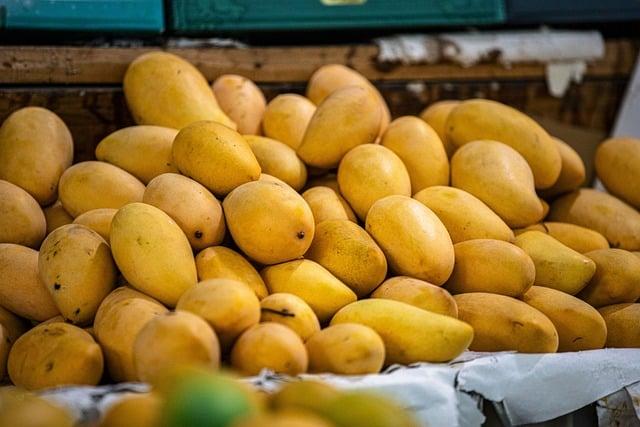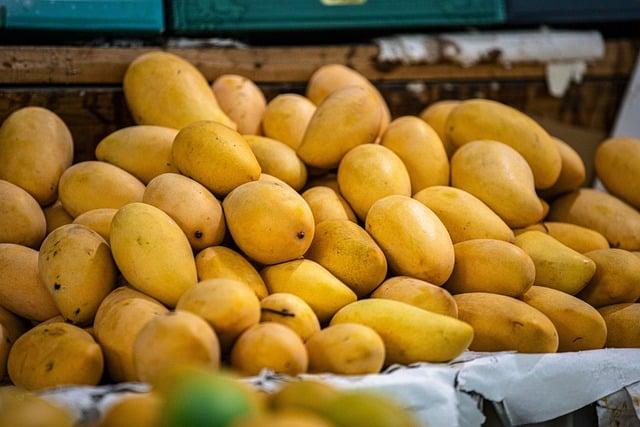- Introduction
- Origin and History of the Mango
- Nutritional Value of Mangoes
- Cultivation Process of the Mango
- Health Benefits of Mangoes
- Conclusion
- FAQs
- References
Introduction
The mango (Mangifera indica) is widely known as the "king of fruits." Originating in South Asia, this tropical fruit boasts not only a delicious taste but also carries significant nutritional and medicinal values. In this article, we’ll explore various aspects of the mango, from its origins and historical significance to its agricultural cultivation process and numerous health benefits.
We’ll begin with a look into the history and origin of this globally beloved fruit, then touch on its impressive nutritional value. Next, we'll journey through the cultivation process to better understand how mangos grow. Lastly, we'll explore how incorporating this fruit into your diet can lead to many health benefits.
Origin and History of the Mango

(Image: Pixabay/@SwidaAlba)
The mango has a rich history that stretches back over 4,000 years. It is believed to have originated in the region now known as Myanmar (Burma) and India. Over time, it spread throughout Southeast Asia and eventually reached Africa and other tropical and sub-tropical regions of the world, thanks to traders and explorers.
In Hindu culture, the mango holds a sacred position, often symbolizing prosperity, wealth, and fertility. In fact, mango trees are often a part of religious rituals, and the leaves are used decoratively in cultural events across India and Southeast Asia. Portuguese traders later introduced mangoes to the Americas around the 16th century, making it a prized fruit in many parts of the world.
Today, mangoes are cultivated in nearly every tropical region globally, including countries like India, Mexico, Thailand, and the Philippines, making it one of the most consumed fruits worldwide.
Nutritional Value of Mangoes

(Image: Pixabay/@QUICK_DRAWING)
Mangoes are packed with nutrients, making them not only delectable but beneficial for your overall health. One cup of diced mango contains about 100 calories, which makes it an ideal low-calorie snack while being high in essential vitamins and minerals.
Mangoes are particularly rich in Vitamin C, with one serving providing nearly 70% of an adult's daily recommended intake. Vitamin A is another abundant nutrient found in mangoes, supporting eye health and boosting your immune system. Additionally, they contain fiber that aids in digestion and potassium, which is vital for heart health.
Antioxidants, such as quercetin, isoquercitrin, astragalin, fisetin, gallic acid, and methylgallate, are some of the bioactive compounds found in mangoes that offer protection against various kinds of cancers. The high antioxidant content, combined with its anti-inflammatory properties, makes mangoes a superfruit for health enthusiasts.
Cultivation Process of the Mango

(Image: Pixabay/@5023100)
Mangoes thrive in warm tropical climates, requiring full sunlight and well-drained soil to grow properly. Typically, mango trees need at least six hours of direct sunlight daily and flourish best in temperatures between 24°C and 30°C (75°F to 86°F).
Cultivating mangoes begins with planting either seeds or grafts. Grafted mango trees bear fruit earlier compared to those grown from seeds, often yielding a crop within three to five years. Trees usually bloom in the spring, with fruits ready for harvest in late summer or early fall, depending on the variety and location.
Mango farmers must keep the trees pruned, protect them from pests, and ensure proper irrigation to maximize fruit quality. Organic farming practices are increasingly being adopted to grow mangos without pesticides, especially for export markets. These practices focus on enriching the soil and preventing chemical exposure in the final product.
Health Benefits of Mangoes

(Image: Pixabay/@liwanchun)
Eating mangoes regularly offers a wide array of health benefits. As mentioned earlier, their high Vitamin C content boosts the immune system and contributes to healthier skin. Additionally, mangoes are rich in antioxidants that help reduce inflammation and promote heart health.
Mangoes are especially beneficial for digestion due to their fiber content. The fiber in mangoes is helpful in improving digestion and preventing constipation, while enzymes like amylase further aid in breaking down complex carbohydrates into simple sugars.
There are even more specific benefits, like improving eye health due to their beta-carotene content, which helps prevent night blindness and dry eyes. Given their anti-inflammatory and alkaline properties, mangoes may also play a role in reducing the risk of certain cancers, particularly colon, breast, and prostate cancer.
Conclusion
The mango is far more than just a succulent and sweet tropical fruit; it’s a repository of health, nutrition, and history. From its ancient roots in South Asia to its current status as a global fruit staple, the mango continues to impact cultures, cuisines, and health trends around the world. Incorporating mangoes into your diet may bring a range of health advantages—whether you're opting for fresh, frozen, or dried versions.
FAQs
Is it safe to eat mango skin?
Mango skin is technically edible, but it often contains a compound called urushiol, which is also found in poison ivy. This can cause allergic reactions in some people. If you're sensitive, it's best to avoid mango skin.
How should mangoes be stored?
If mangoes are ripe, they should be placed in the refrigerator to prolong their freshness for up to five days. If unripe, you can store them at room temperature until they soften.
Which country produces the most mangoes?
India is the world's largest producer of mangoes, accounting for nearly half of the global production yearly. Popular Indian mango varieties include Alphonso, Kesar, and Dasheri.
Can mangoes help in weight loss?
Yes, since mangoes are low in calories but high in fiber, they can keep you fuller for longer, helping you avoid overeating. However, consumption in moderation is recommended due to the natural sugar content.

